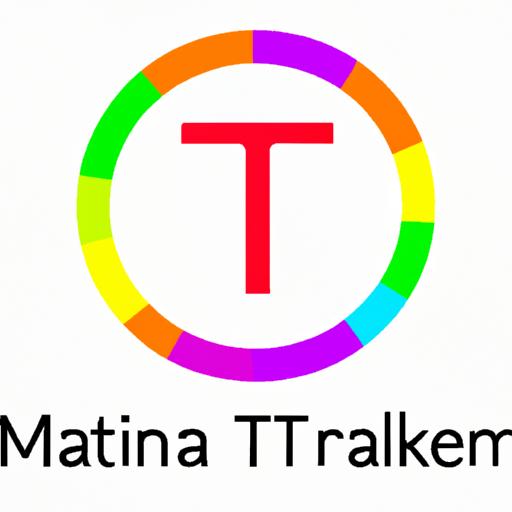Have you ever thought about the significance of trademarking your business name? In the vast sea of brands and businesses, standing out and protecting your unique identity is crucial. This is where trademarking comes into play. By securing legal rights to your business name, you not only shield yourself from potential infringements but also reap numerous benefits that can elevate your brand to new heights. Join me as we delve into the importance of trademarking your business name and explore the advantages it offers.
Importance of Trademarking a Business Name

Imagine pouring your heart and soul into building a brand, only to have it stolen or imitated by someone else. It's a nightmare scenario, right? Trademarking your business name acts as a protective shield, ensuring that no one can unlawfully use or profit from your hard-earned reputation. It grants you exclusive rights to your brand, preventing others from capitalizing on your success.
Benefits of Trademarking for Business Owners
As a business owner, you're constantly striving to differentiate yourself from the competition. Trademarking your business name is a powerful tool in achieving that goal. By securing a trademark, you establish a distinctive identity in the market, making it easier for consumers to recognize and remember your brand. This recognition, in turn, breeds familiarity and trust, enhancing customer loyalty and driving sales.
Moreover, a registered trademark signals professionalism and credibility. It shows that you take your business seriously and are committed to protecting your brand. This can attract potential investors, partners, and customers, who are more likely to engage with a reputable and legally protected brand.
Overview of the Article's Content
Throughout this article, we will guide you through the process of trademarking your business name. We will explore the steps involved, common mistakes to avoid, and the benefits you can reap. By the end, you'll have a comprehensive understanding of the trademarking process and the advantages it brings to your business.
So, are you ready to take control of your brand's destiny? Let's dive into the world of trademarking and unlock the immense potential it holds for your business.
Understanding Trademarks
When it comes to trademarking your business name, it's essential to have a solid understanding of what a trademark is and its various types. Let's explore the world of trademarks and their significance in protecting your brand.
Definition of a Trademark
A trademark is a legal term referring to any distinctive word, phrase, symbol, design, or combination thereof that identifies and distinguishes a particular product or service from others in the marketplace. It serves as a unique identifier, allowing consumers to associate specific qualities and attributes with a particular brand.
Explanation of Different Types of Trademarks
Trademarks can take various forms, each providing different levels of protection. The most common types of trademarks include:
-
Word Marks: These trademarks consist of a single word or a combination of words. They are highly versatile and can be particularly effective in establishing brand recognition.
-
Design Marks: Design marks involve logos, symbols, or graphical elements that visually represent a brand. These marks can be visually distinctive and play a crucial role in brand identity.
-
Slogan Marks: Slogans or taglines that are catchy and memorable can also be trademarked. They encapsulate the essence of a brand's message and can leave a lasting impression on consumers.
-
Sound Marks: In some cases, unique sound sequences, jingles, or even specific musical notes can be trademarked. These marks are often associated with well-known brands and add an auditory dimension to brand recognition.
Importance of Distinctiveness and Non-Generic Nature of a Business Name
When choosing a business name, it's crucial to ensure that it is distinctive and non-generic. A generic or descriptive business name may face challenges in obtaining trademark protection. Trademarks are designed to protect unique and distinctive brands, as they are more likely to be associated with specific goods or services. A distinctive business name stands out from the competition, making it easier to establish a strong brand presence in the market.
Understanding the different types of trademarks and the importance of a distinct and non-generic business name sets the foundation for successfully trademarking your brand. In the next section, we will explore the compelling reasons why you should consider trademarking your business name.
Why Trademark Your Business Name?
Protection against Infringement and Unauthorized Use
When you trademark your business name, you gain the legal right to protect it from infringement and unauthorized use. This means that no one else can use a similar or identical name in a way that could confuse consumers or dilute your brand's uniqueness. Trademark protection empowers you to take legal action against those who attempt to encroach upon your brand identity, ensuring that your business remains distinct and recognizable in the marketplace.
Building Brand Recognition and Reputation
A strong and memorable brand is essential for success in today's competitive business landscape. By trademarking your business name, you solidify your brand's identity and make it easier for consumers to identify and remember you. This can lead to increased brand recognition, which in turn can drive customer loyalty and attract new customers. A distinctive and well-protected business name sets you apart from the crowd and helps you establish a strong reputation in your industry.
Strengthening Legal Rights and Ownership
Trademarks provide you with exclusive rights and ownership over your business name. This ownership allows you to prevent others from using your name for similar goods or services, safeguarding your market share and preventing confusion among consumers. By securing a trademark, you establish a legal foundation for your brand, giving you the ability to expand and grow without fear of infringement or loss of reputation.
Enhancing Credibility and Trust among Customers
In today's digital age, trust is paramount. By trademarking your business name, you demonstrate to your customers that you are a legitimate and trustworthy entity. A registered trademark adds a layer of credibility and professionalism to your brand, signaling to consumers that you are committed to maintaining the quality and integrity of your products or services. This can instill confidence in your customers, leading to increased loyalty and repeat business.
In the next section, we will delve into the practical steps involved in trademarking your business name. Stay tuned to learn how to protect your brand and unlock its full potential.
Steps to Trademark Your Business Name
Protecting your business name through trademark registration involves a series of crucial steps. Let's explore each of these steps in detail to ensure you navigate the process smoothly and effectively.
Conducting a Comprehensive Trademark Search
Before embarking on the trademark registration journey, it's essential to conduct a thorough trademark search. This involves examining existing trademarks to ensure that your desired business name is unique and does not infringe upon any existing marks. You can perform a search through the United States Patent and Trademark Office (USPTO) database or seek the assistance of professional trademark search services to ensure comprehensive coverage.
Filing a Trademark Application
Once you've confirmed the availability of your business name, the next step is to file a trademark application. This involves submitting the necessary documentation and information to the appropriate trademark office, such as the USPTO. It's crucial to provide accurate and detailed information to expedite the application process and maximize your chances of approval.
Navigating the Registration Process
After filing your trademark application, it enters a registration process that can take several months to complete. During this time, the trademark office reviews your application, conducts an examination for any conflicts or objections, and may request additional information or clarification. It's important to stay engaged and responsive throughout this process to address any concerns promptly.
Understanding the Associated Costs and Timeframes
Trademark registration incurs certain costs, including filing fees and potential legal fees. The specific expenses vary depending on the jurisdiction and the services you require. It's crucial to budget for these costs and understand the timelines involved, as the registration process can take several months or even longer.
Utilizing Professional Assistance if Needed
While it's possible to navigate the trademark registration process independently, many business owners opt to seek professional assistance. Trademark attorneys or specialized trademark registration services can provide valuable guidance, ensuring that your application meets all legal requirements and increasing the likelihood of a successful registration.
By following these steps, you can embark on the path to trademarking your business name with confidence and clarity. Remember, the process may seem complex, but the rewards of protecting your brand make it well worth the effort. Stay tuned as we explore common mistakes to avoid in the next section.
